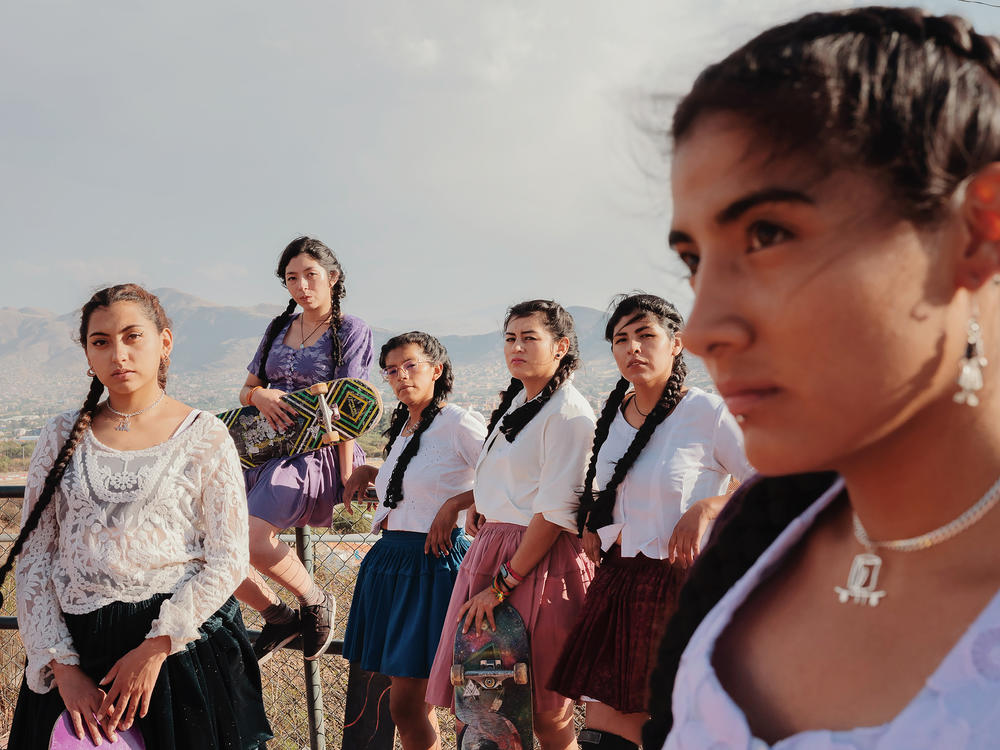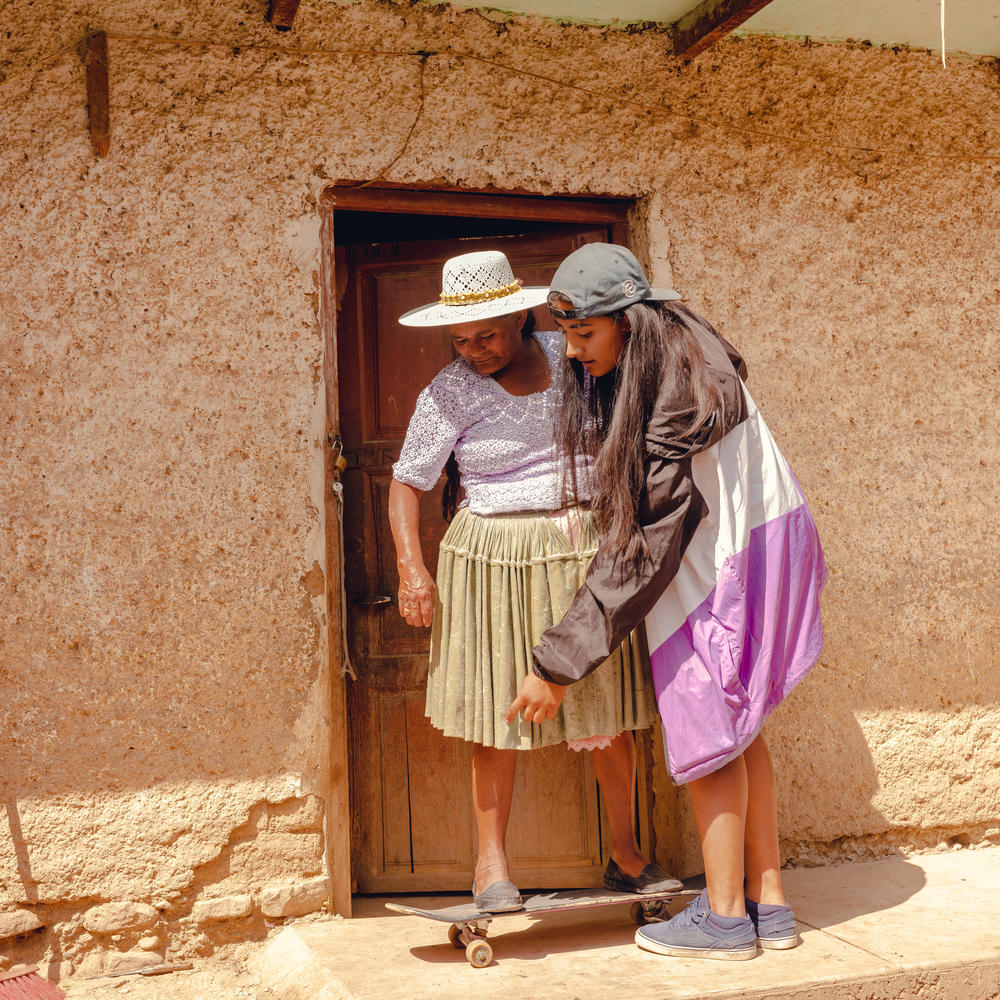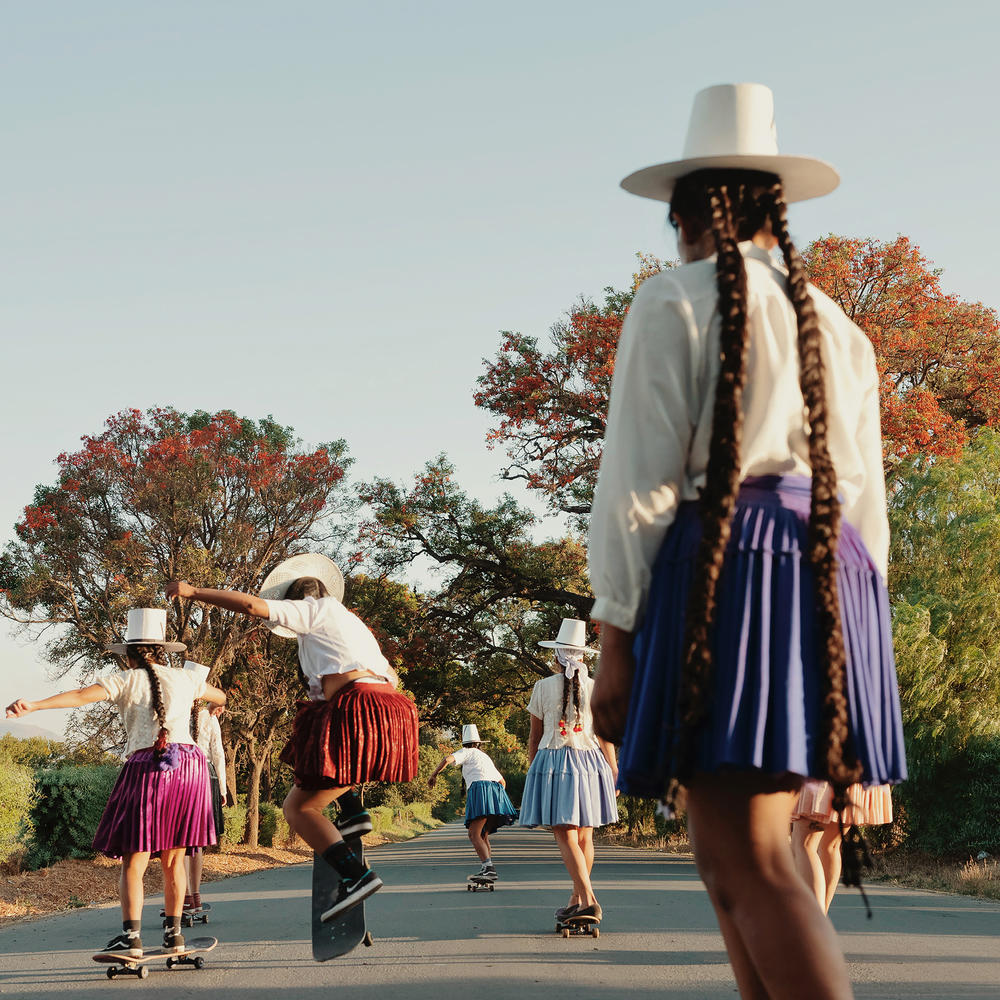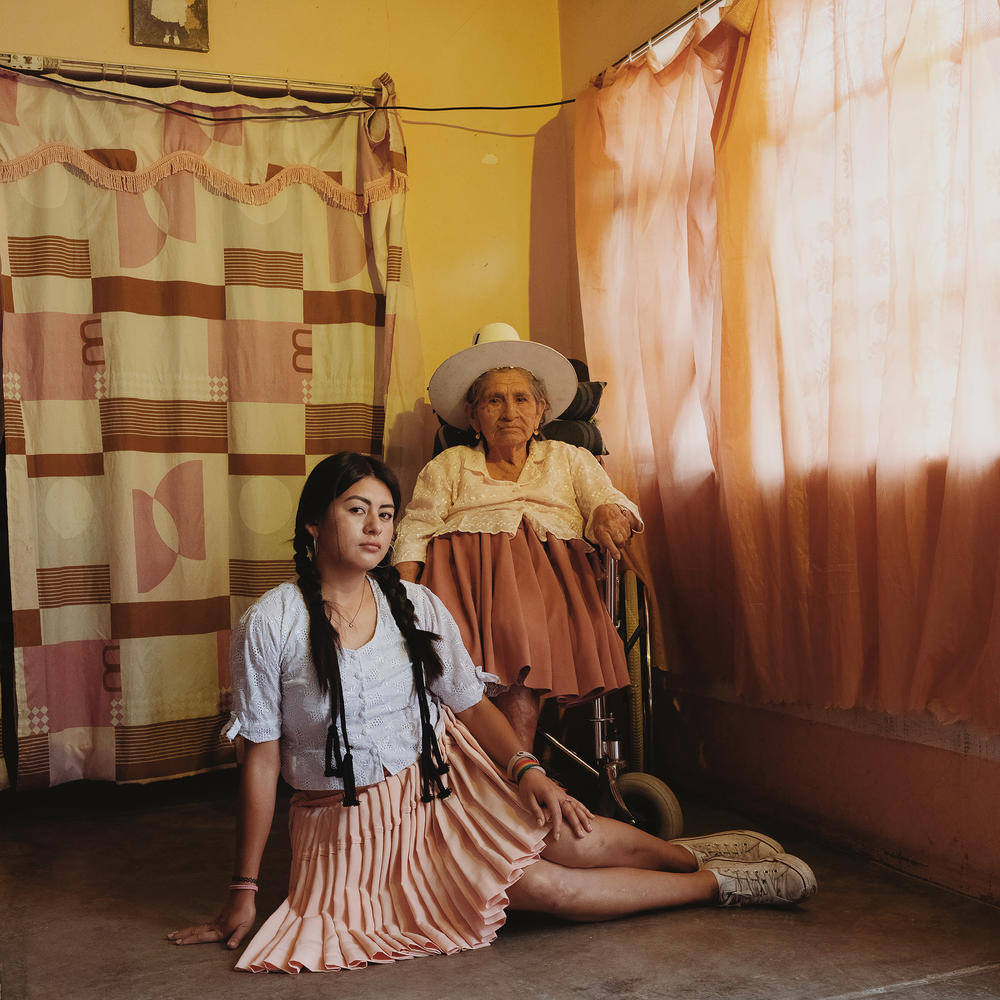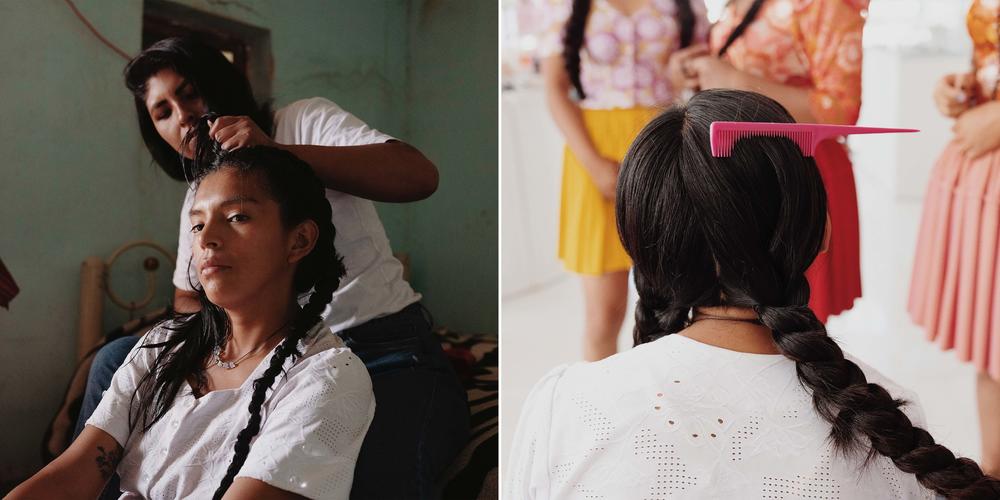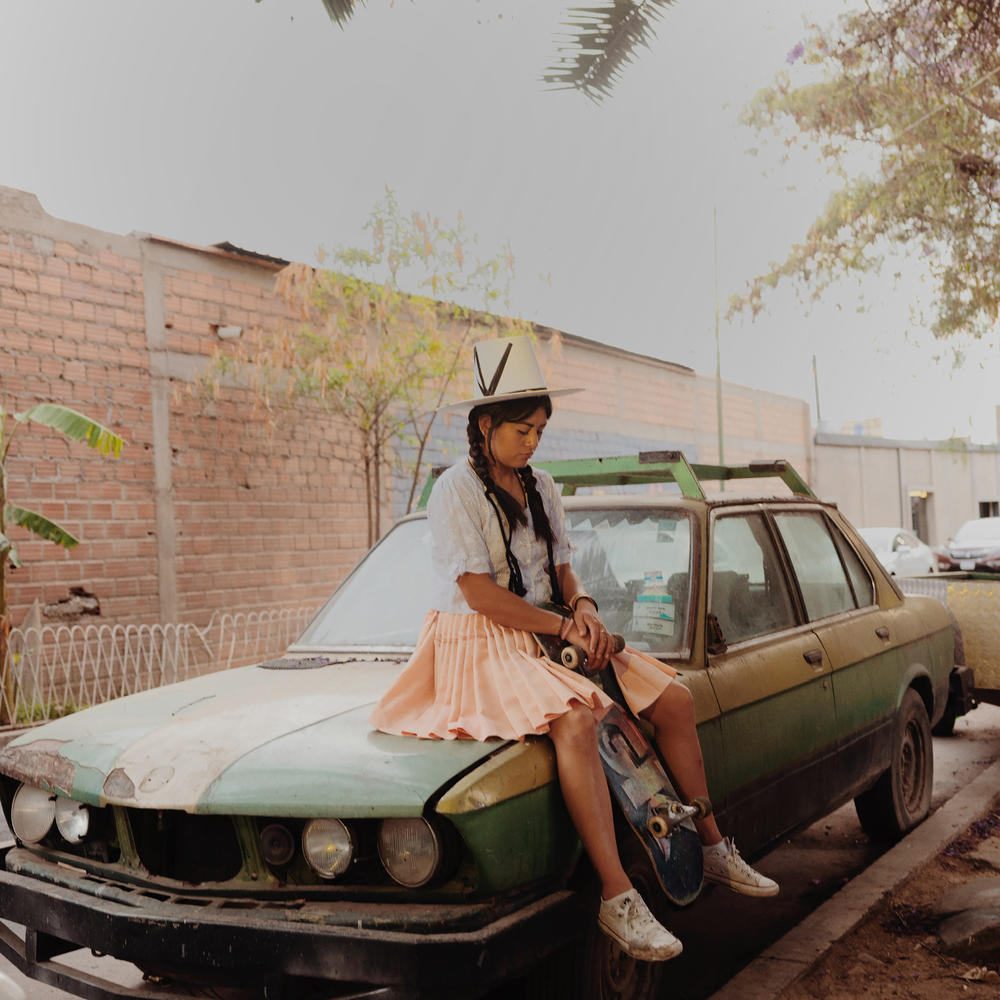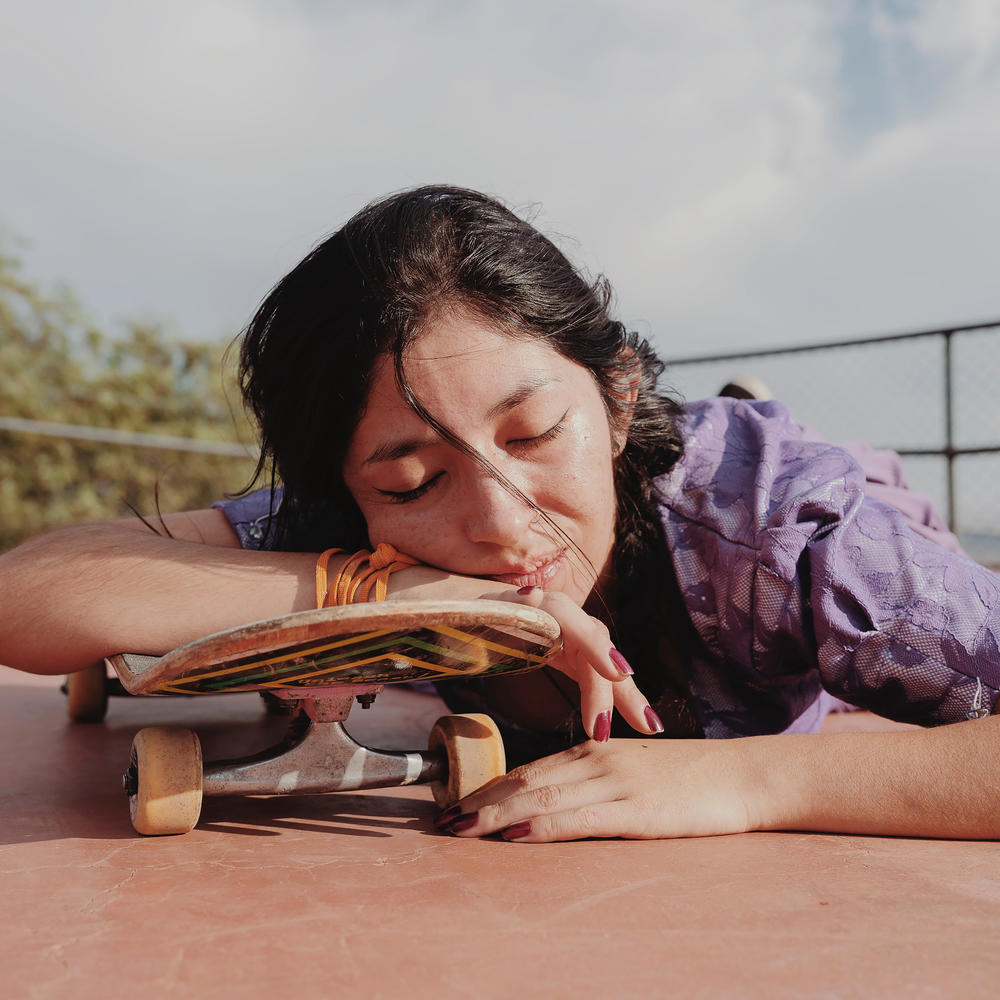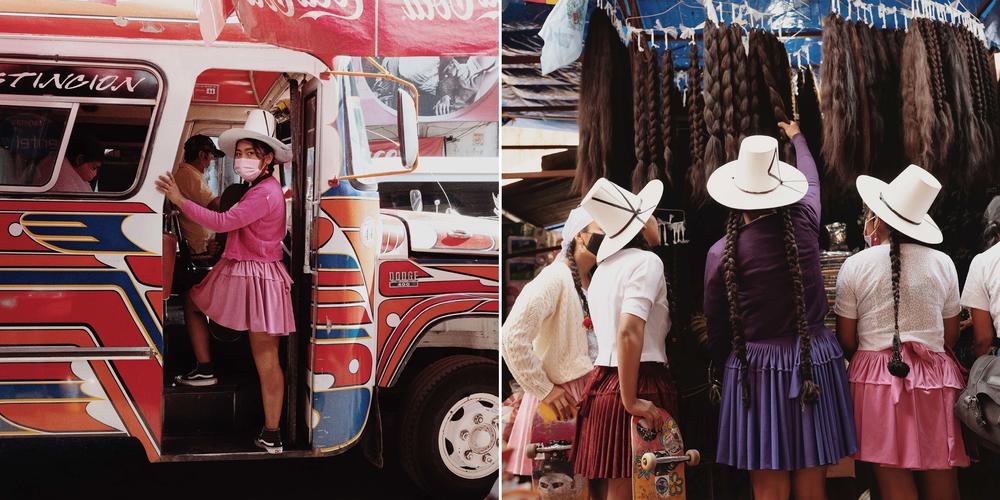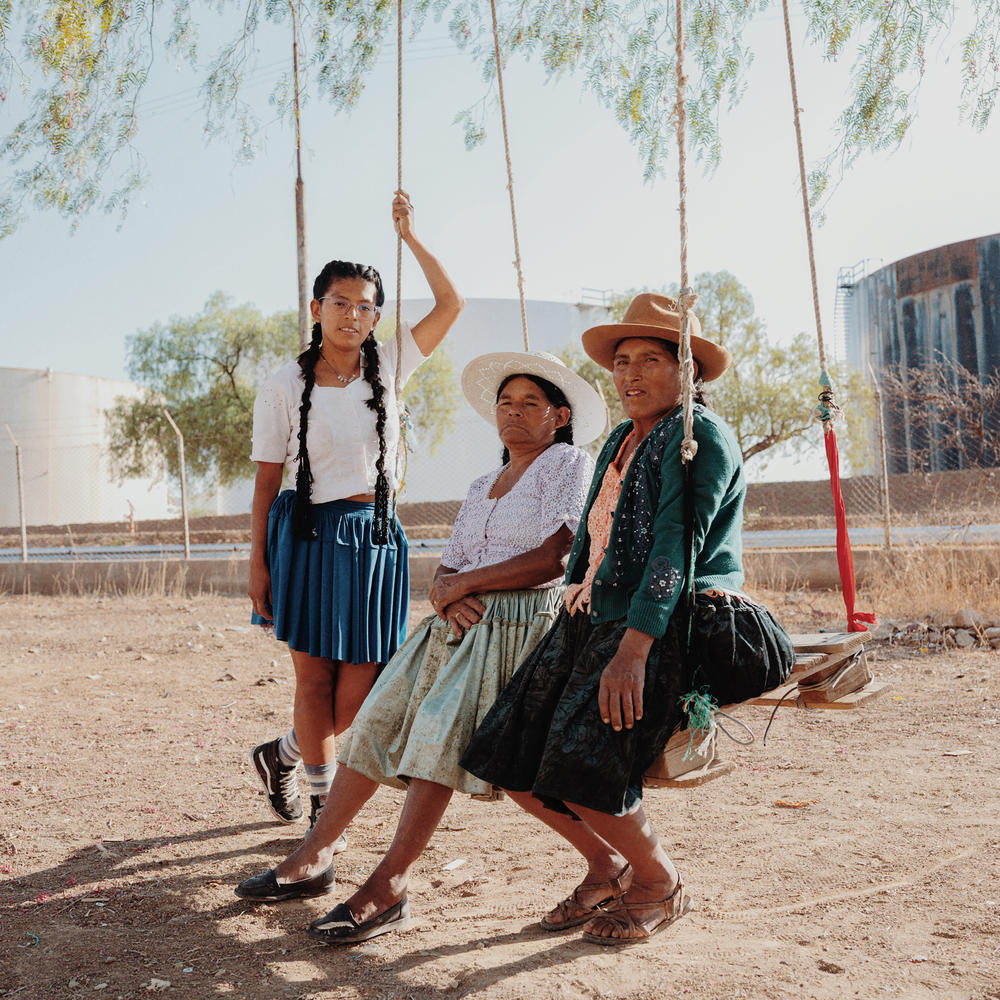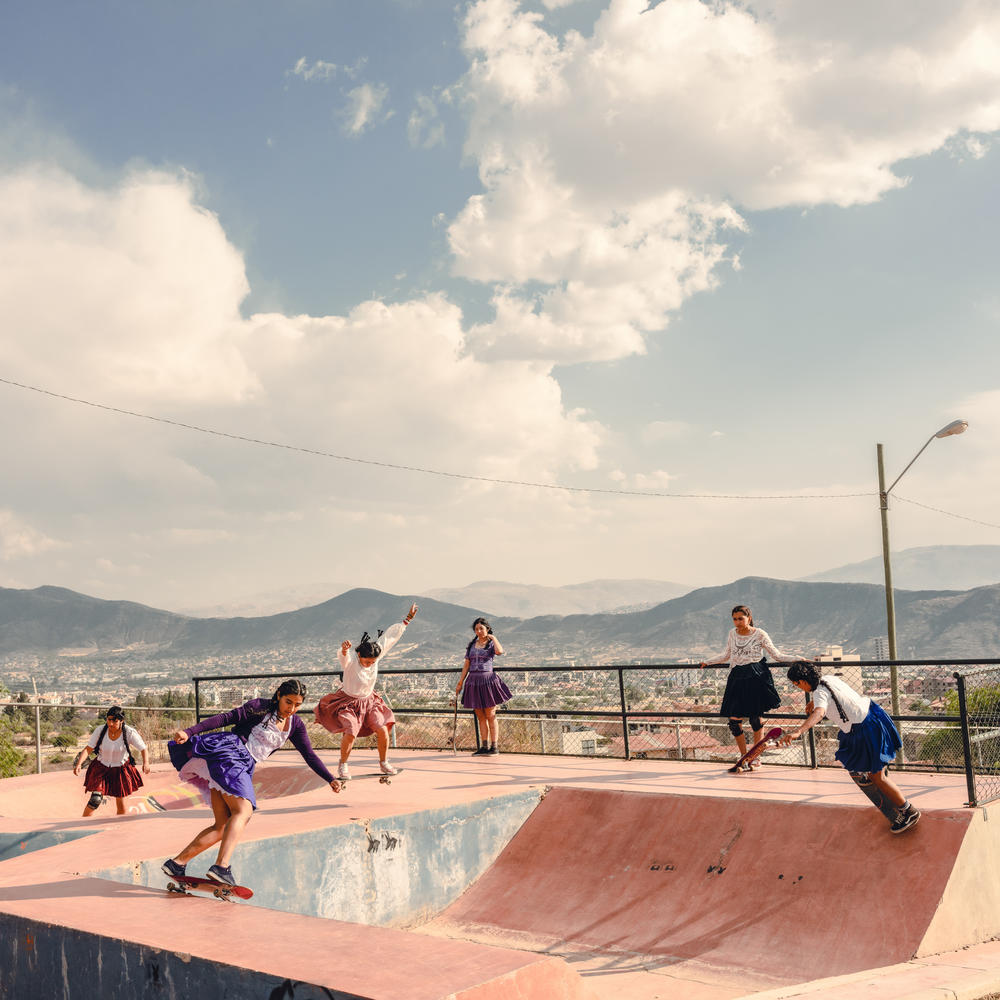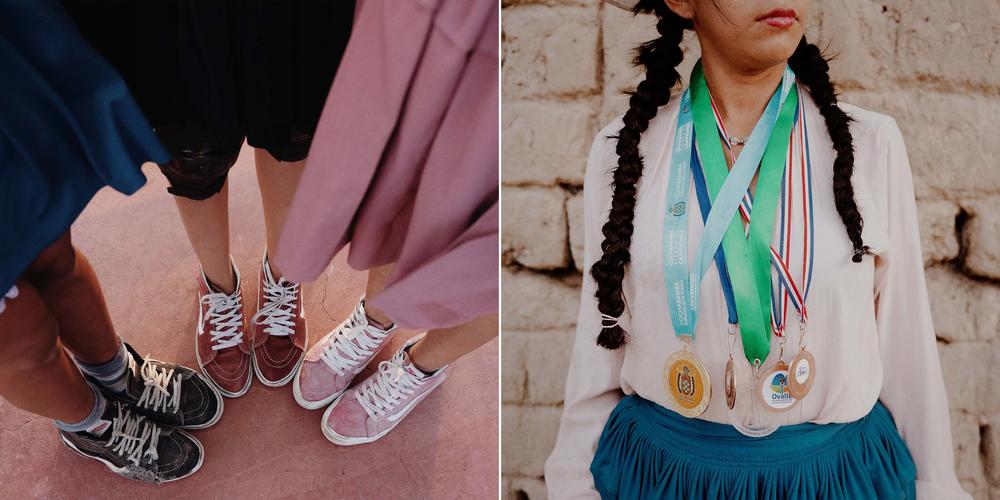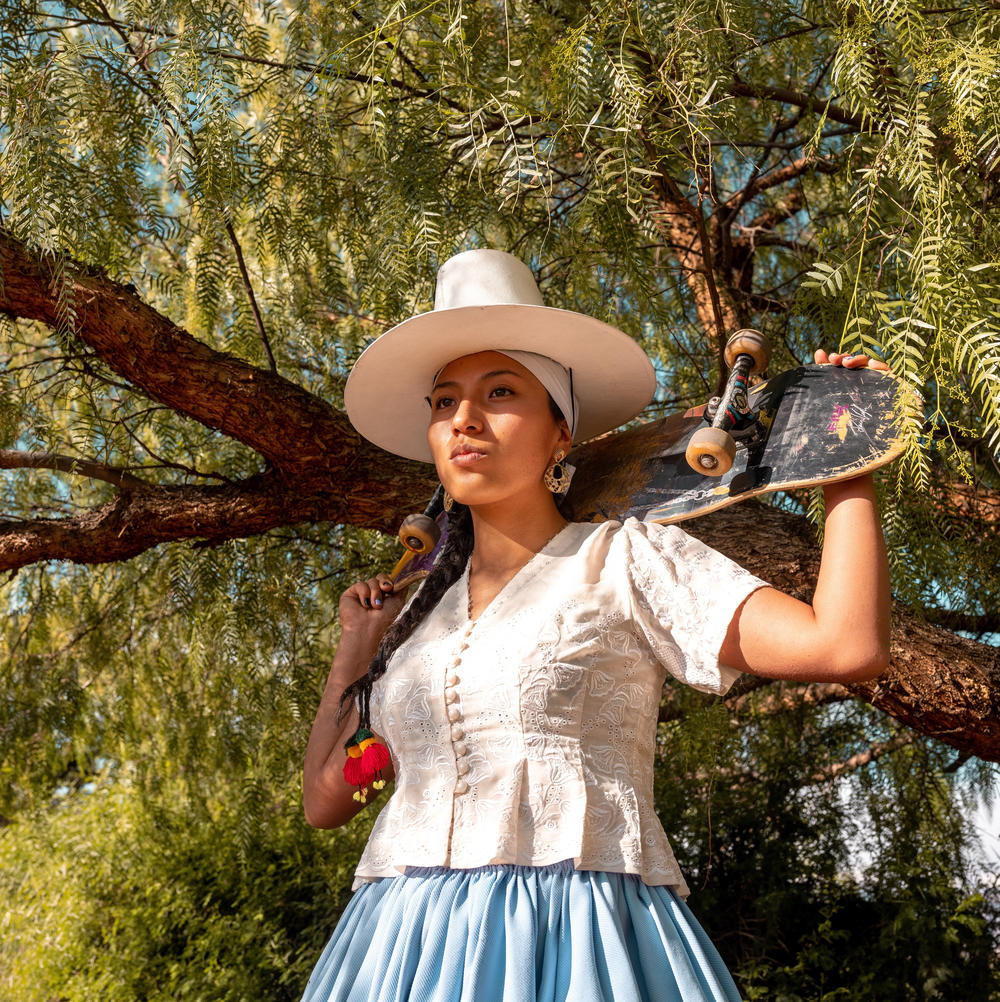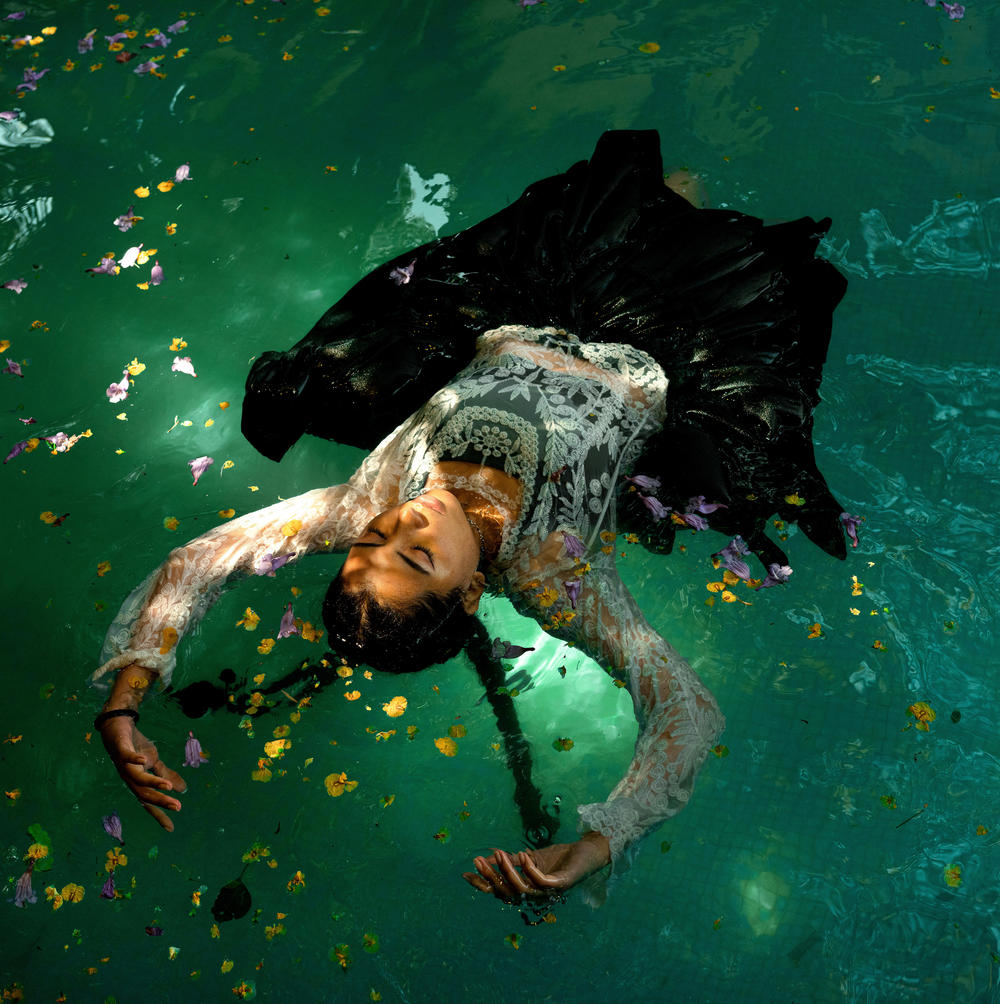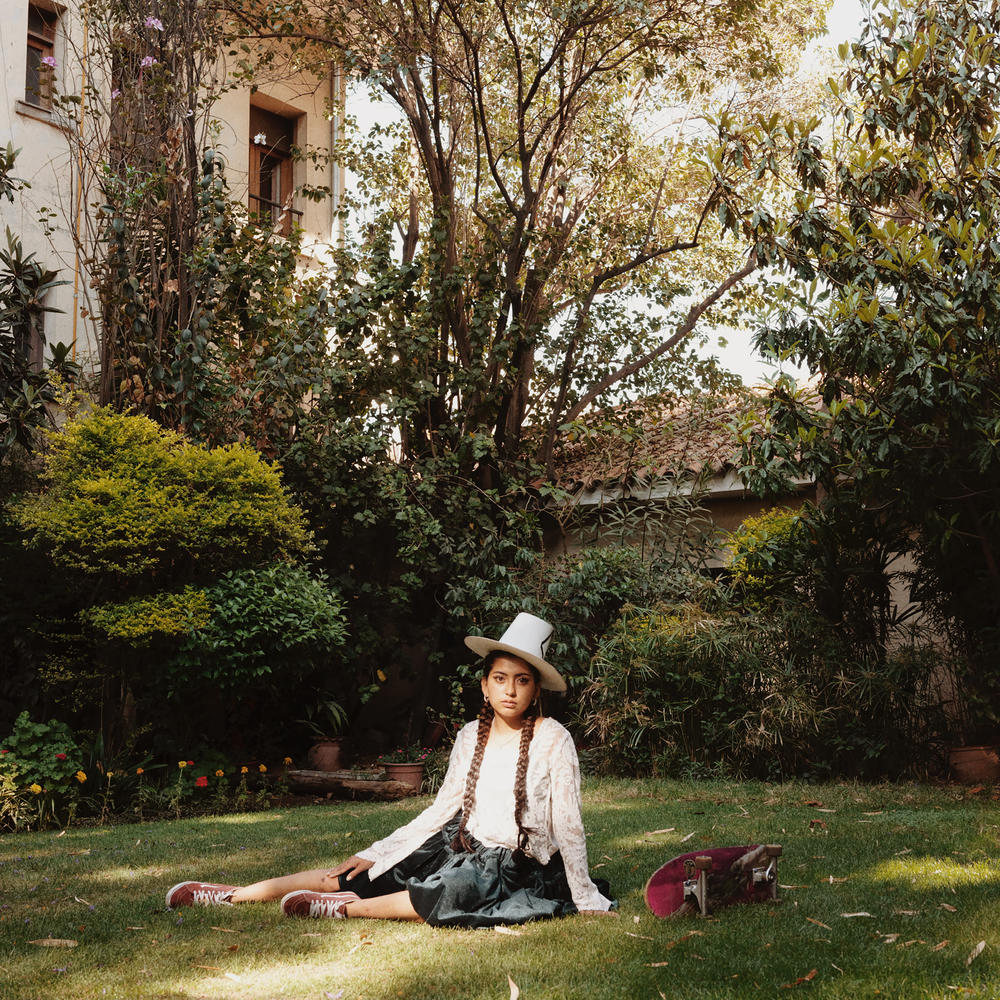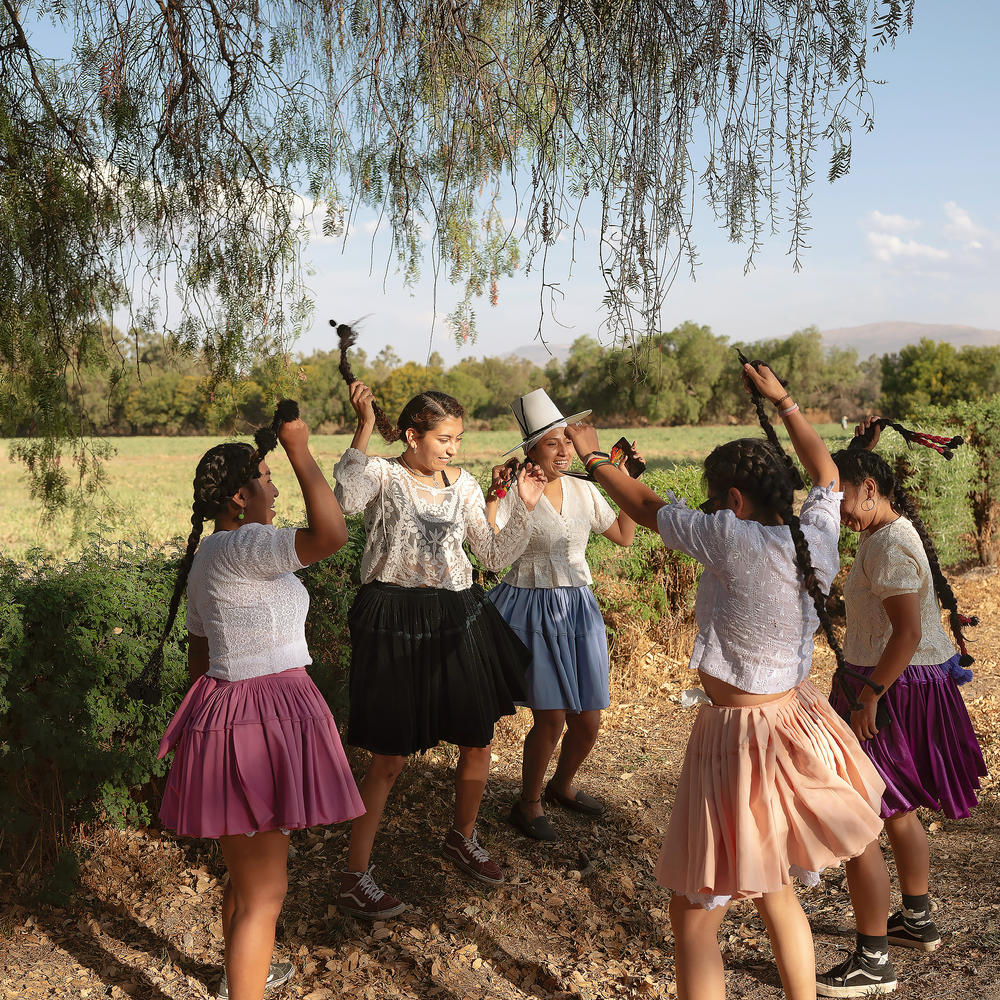Section Branding
Header Content
PHOTOS: How this Bolivian all-female skate crew is celebrating their Indigenous roots
Primary Content
No matter where skaters are in the world, you'll likely find them wearing baggy jeans and faded T-shirts.
Not so for this all-female skate crew in Cochabamba, Bolivia. They pair their Vans sneakers with their mom's and grandma's polleras — colorful, layered skirts worn by the country's Indigenous Aymara and Quechua population.
And they're not just doing it for the fashion. The crew — called ImillaSkate (imilla means "young girl" in the Aymara and Quechua languages) — want to pay homage to their heritage and call out the persecution that the Aymara and Quechua people, majority ethnic groups in Bolivia, have long faced. During Spanish colonial rule, land in Bolivia was taken from Indigenous people, leaving them impoverished and marginalized. Over the years, many women in these groups abandoned their cultural costumes to avoid discrimination.
"By skating in polleras, we want to show that girls and women can do anything, no matter how you look or how people see you," says Daniela Santiváñez, who founded ImillaSkate with two friends in 2019. "The message is to be yourself and be proud of who you are."
Skateboarding is a big part of that. "It teaches you confidence, self-love, to get up from falls — and to be authentic, too," she adds.
Award-winning Brazilian photographer Luisa Dörr, who discovered the young women on Instagram, captured their vibe in a series of intimate portraits taken over two weeks in September and October 2021.
"I was fascinated by their passion for their culture and the need to preserve it," says Dörr. "Skating was just the excuse to bring up other issues."
The nine crew members, most in their 20s, meet regularly to practice. It's especially important to them to wear traditional dress at public events.
"At first, I used to feel a little awkward" about wearing the pollera while skating, says ImillaSkate member Susan Meza. But now, she adds, she understands "the object of doing it and I feel more comfortable and free."
Here's a selection from Dörr's photo series.
Grace Widyatmadja and Ben de la Cruz photo edited this piece.
Copyright 2022 NPR. To see more, visit https://www.npr.org.
